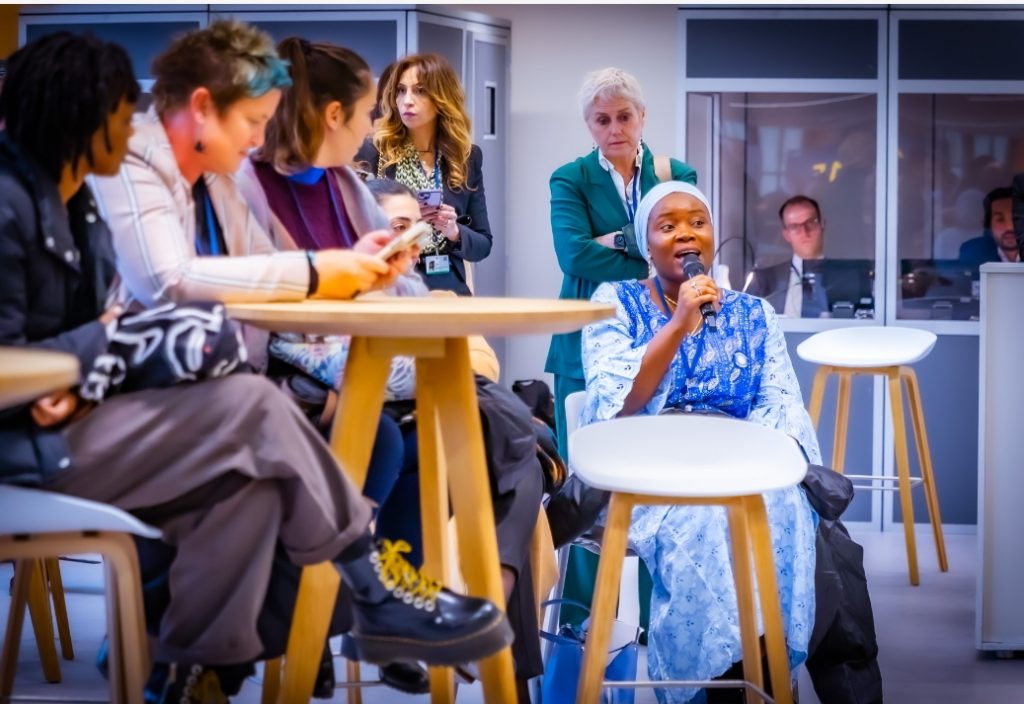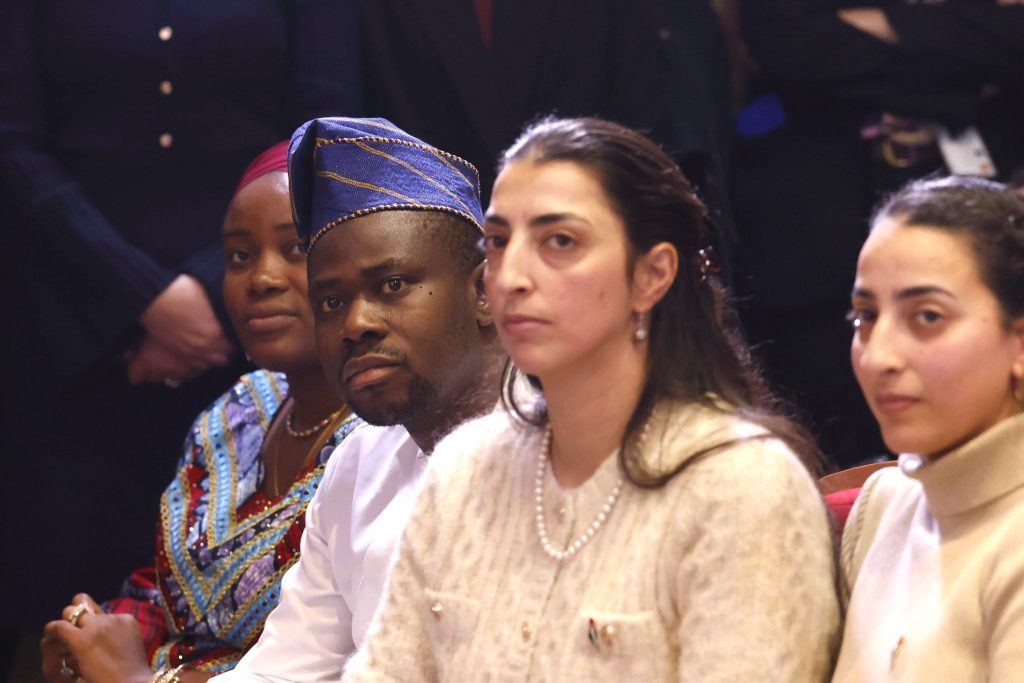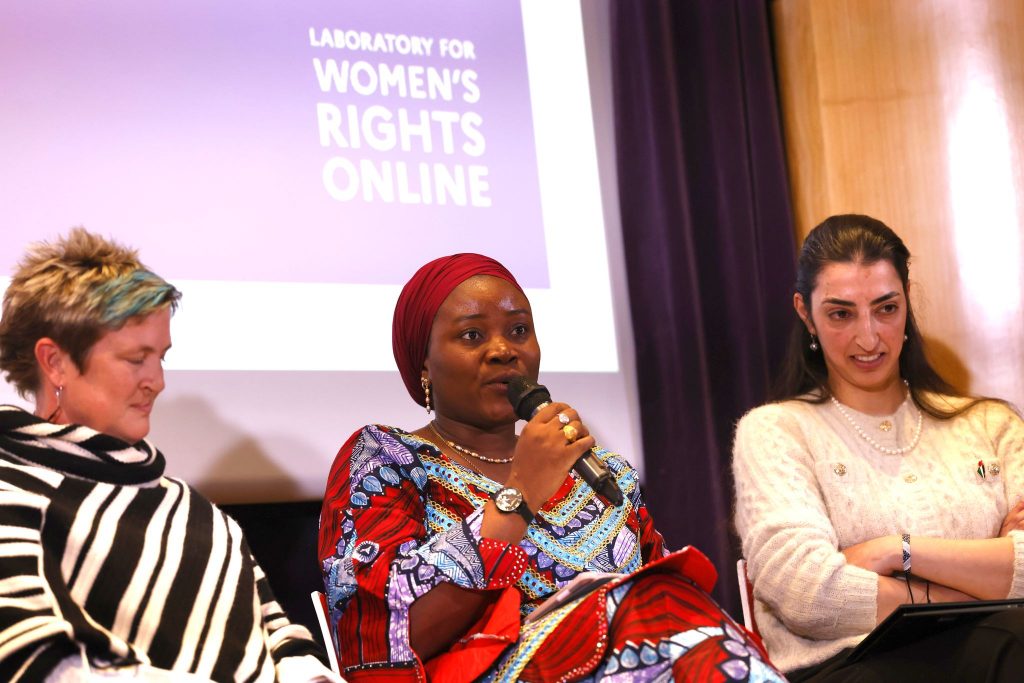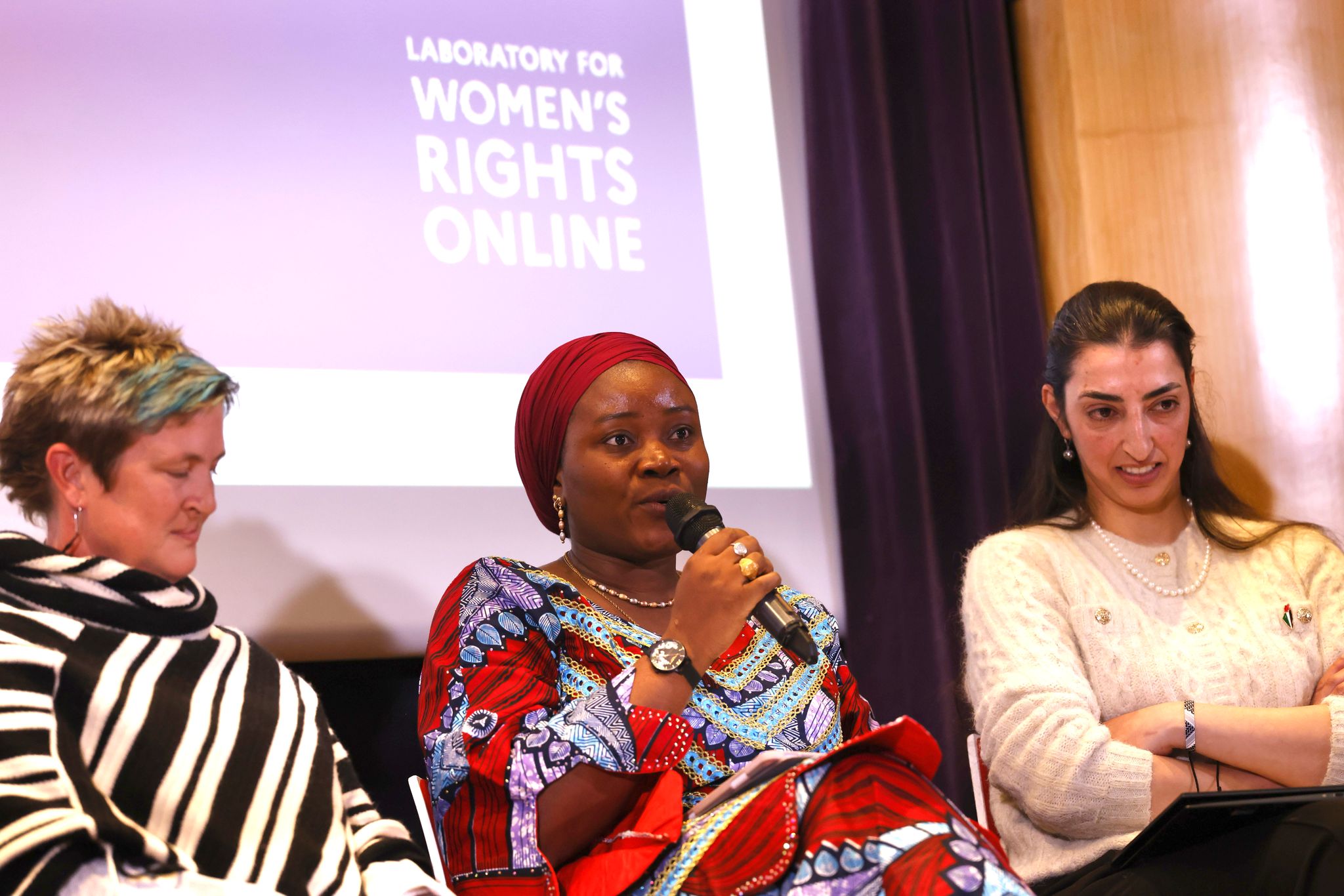By Dare Akogun
The Brain Builders Youth Development Initiative (BBYDI) joined world leaders, international organisations, civil society representatives, the private sector, and academic researchers at the Global AI Action Summit in Paris, France where it showcases its AI powered gender based violence solution.
The summit, which took place between February 10 and 11, 2025, was hosted by the French government at the Grand Palais and co-chaired by French President Emmanuel Macron and Indian Prime Minister Narendra Modi.
According to the organisers, the summit aimed to establish scientific foundations, develop solutions, and set standards for sustainable AI that serves collective progress and public interest.
BBYDI was represented at the event by its Global Director, Abideen Olasupo, and Programme Specialist on Technology-Facilitated Gender-Based Violence (TFGBV), Taibat Hussain.

The duo participated in various sessions, including a side event titled ‘Laboratory for Women’s Rights Online’, organised by the French Ministry for Europe and Foreign Affairs.
Launched in 2024, the laboratory is a global platform focused on preventing and combating online gender-based violence, including AI-generated abuse.

Each year, it selects five innovative projects for financial and logistical support to scale up efforts in addressing TFGBV.
BBYDI’s AI-powered chatbot, HerSafeSpace, was among the five projects selected this year. Presenting the project before the Board of the Laboratory, Olasupo described HerSafeSpace as a tool designed to provide real-time support for women and girls facing online violence, educate them on digital rights and safety measures, and collect data to inform policy interventions.
“The AI-driven tool will offer immediate assistance, raise awareness, and ensure that women and girls in West Africa have access to resources that protect them from online abuse,” he stated.
Also speaking, Hussain noted that the chatbot was designed following UNESCO’s AI ethics recommendations.

She highlighted the project’s goal of increasing awareness about online gender-based violence while fostering a safer digital space for women and girls.
“As part of this initiative, we will conduct digital safety education and engage in data-driven advocacy, alongside local partnerships, to ensure a sustainable impact,” she added.
She further expressed appreciation to the French Ministry for Europe and Foreign Affairs for supporting HerSafeSpace, stressing that online gender-based violence is a growing concern that demands urgent global action.
Shortly after the presentation, Olasupo, in a chat with journalists, reiterated the need for collaboration among governments, tech companies, civil society groups, and international organisations to ensure that AI remains open, inclusive, and safe.

“As AI continues to evolve, it is crucial to develop ethical frameworks and policies that promote transparency and accountability,” he said, calling for greater support for AI-driven innovations that enhance safety and sustainable development.

